21 highly successful people who rebounded after getting fired
Thomas Edison secretly conducted experiments in his office at Western Union that got him fired.

Before heading to Yale, former Secretary of State Hillary Clinton was fired from her brief stint at a salmon cannery in Valdez, Alaska.
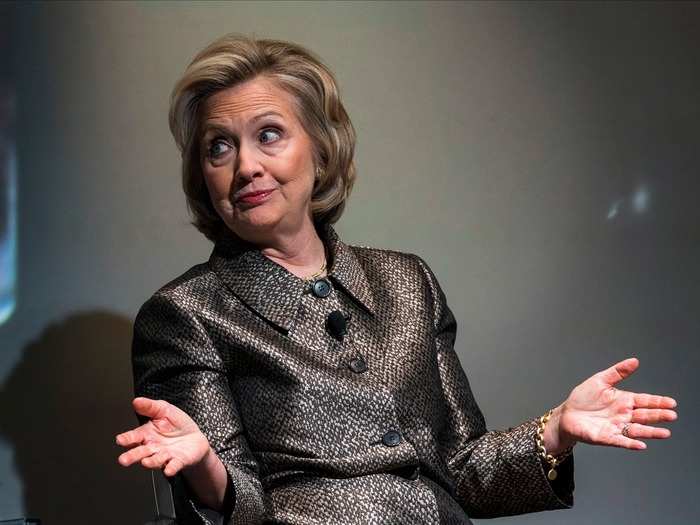
The former New York Senator recounted on the "Today" show on Monday that after graduating from Wellesley College, she and some friends worked their way across Alaska washing dishes, and she eventually wound up working in a fishery scooping out salmon guts.
"I was given a spoon and some boots and I was told to take out the insides of the salmon," she said.
Clinton didn't last long in that role, however, noting that the Japanese workers who were taking out the caviar yelled at her for working too slowly. "So they literally kicked me out of that job," Clinton said.
She says they then placed her on the line packing the salmon head to tail. But when she noticed the salmon were "green and black — they looked horrible" and a peculiar stench, she questioned the man running the operation about the salmon's quality.
"When I left, I came back the next day and the whole operation was gone," Clinton said. "So I think that was the equivalent of getting fired."
During a previous inter viw on Letterman in 2007, Clinton called her stint at the cannery her "favorite summer job of all time," noting its role in her future success: "Best preparation for being in Washington that you can imagine," she said.
Steve Jobs was fired from Apple, the company he cofounded. His second act turned out to be bigger and better than the first.
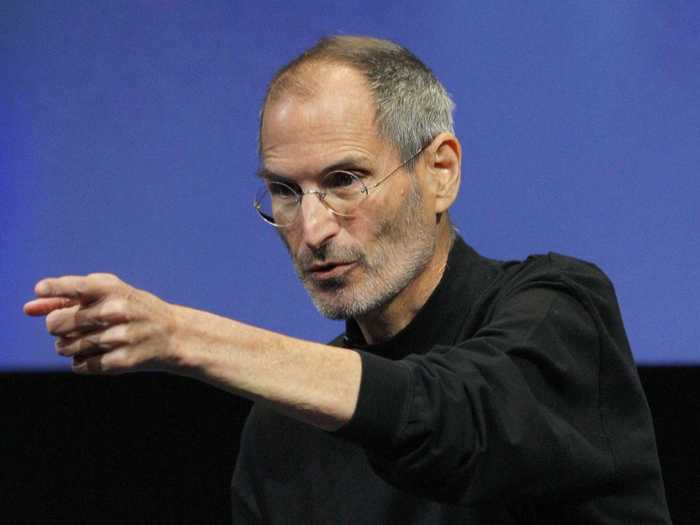
When Jobs was in his 30s, the very company he created fired him.
"I was out — and very publicly out," Jobs said in a 2005 commencement speech at Stanford University. "What had been the focus of my entire adult life was gone, and it was devastating."
Jobs spent the summer of 1985 in a "midlife crisis" trying to decide what he wanted to do, from entering politics to becoming an astronaut, said Alan Deutschman, author of "The Second Coming of Steve Jobs."
During his time away from Apple, Jobs cofounded computer company NeXT, which was later acquired by Apple, and launched Pixar Animation Studios. When he returned to Apple nearly a decade later, he brought the innovation of the iPod, iPhone, and iPad.
Walt Disney's newspaper editor told the aspiring cartoonist he wasn't creative enough.
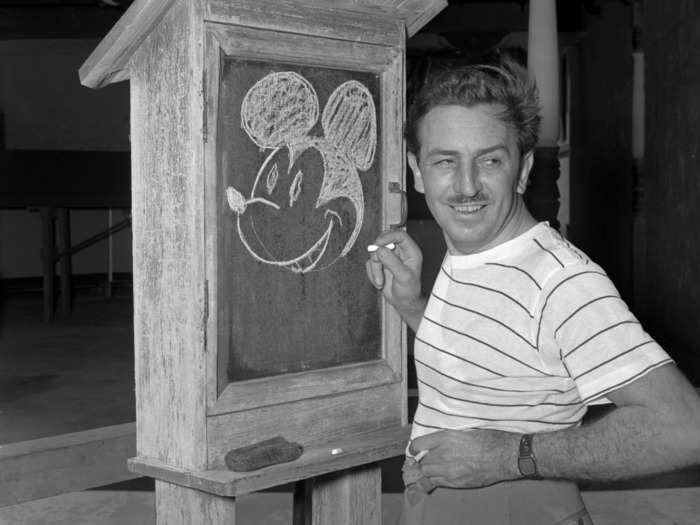
In 1919, Disney was fired from one of his first animation jobs at the Kansas City Star newspaper because his editor felt he "lacked imagination and had no good ideas," according to "The Wisdom of Oz."
That wasn't the last of his failures. Disney then acquired Laugh-O-Gram, an animation studio he later drove into bankruptcy. Finally, he decided to set his sights on a more profitable area: Hollywood.
He and his brother moved to California and began the Disney Brothers' Studio, eventually creating Mickey Mouse and Disneyland and winning 22 Academy Awards.
Carly Fiorina was fired as CEO of Hewlett-Packard.
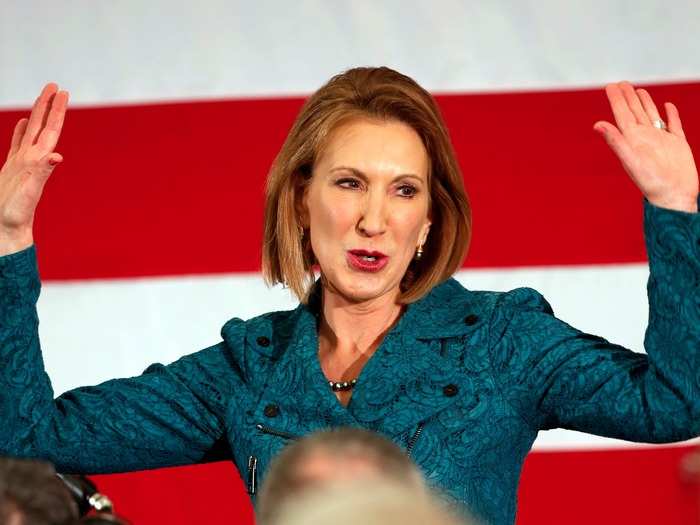
The first female executive of a Fortune 500 company, Fiorina was forced to resign from HP after six years at the helm in 2005 after the controversial decision to buy Compaq in 2002 for $25 billion and subsequent lay off of 15,000 employees at Hewlett-Packard, International Business Times reports.
While she's never held elected office, Fiorina announced her candidacy for president in May and currently is a frontrunner in the polls ahead of career politicians like Jeb Bush and Marco Rubio for the Republican nomination.
"I was fired in a boardroom brawl. And you know why?" Fiorina told CNN in August. "Because I challenged the status quo. It is what leaders must do. And when you challenge the status quo, when you lead, you make enemies. It's why so few people lead."
In the 1980s, Mark Cuban lost his job as a salesman at computer store. That was the last time he worked for someone else.
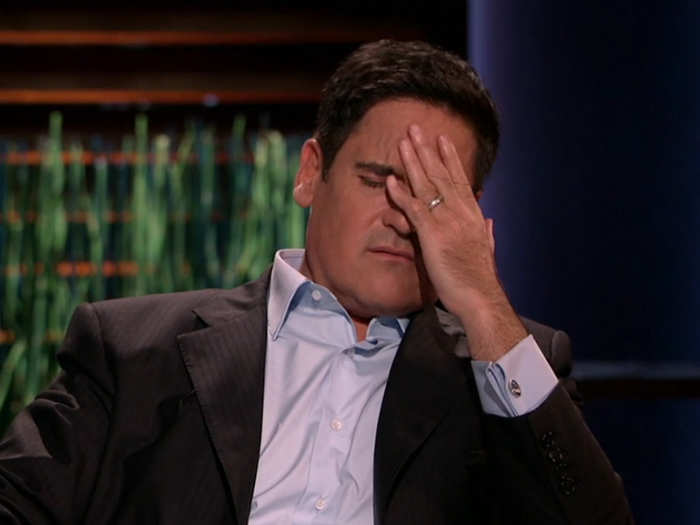
One of Cuban's first jobs out of college was as a PC software salesman. However, he was more interested in cultivating new business than obeying his boss.
Cuban wrote in Forbes that, after a few months on the job, he had to opportunity to make a $15,000 sale — he just needed a coworker to cover him at the office and to get his boss's approval.
After his boss told him not to make the sale, Cuban decided to go through with it anyway, and upon returning to the office with the check was promptly fired.
"But being fired from that job was the determining factor in my business life," he wrote. "I decided then and there to start my own company."
Shortly after his termination, Cuban started Micro-Solutions and has since earned an estimated $3 billion, according to Forbes.
J.K. Rowling spent too much time at work brainstorming story ideas.
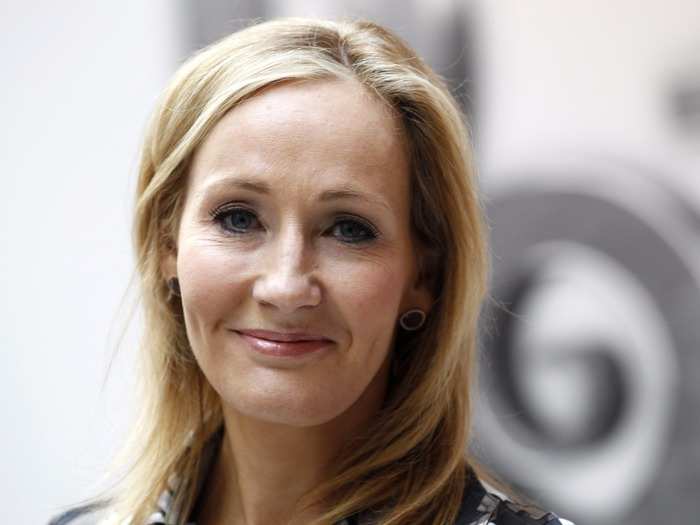
Rowling worked as a secretary for the London office of Amnesty International, but she dreamed of being a writer.
She secretly wrote stories on her work computer and daydreamed about a teenage wizard named Harry Potter. Her employers finally got fed up and gave her the boot, according to "Your Journey from Fired to Hired."
Her severance check helped support her over the next few years, when she finally decided to focus on writing.
Today, she's the author of one of the most successful book series of all time.
Mayor Michael Bloomberg used his severance check to start his own company. Now he's one of the richest people in the country.

Bloomberg was a partner at investment bank Salomon Brothers. In 1998, they were bought out by the company that eventually became Citigroup. Bloomberg was let go, but not before receiving a hefty severance check, he writes in his autobiography, "Bloomberg by Bloomberg."
He used that money to start his own financial services company, originally called Innovative Market Solutions. The company, eventually renamed Bloomberg LP, aimed to make it easier for traders to wade through data and was worth $2 billion by 1989.
Today, the former New York mayor is work an estimated $38.4 billion, according to Forbes.
Julia Child was fired from her advertising job for "gross insubordination."

In the early 1930s, Child was the advertising manager of home furnishings company W&J Sloane's Los Angeles branch, according to Bio. She was fired for "gross insubordination" a few months after acquiring the position.
"I don't wonder," she reportedly wrote on her résumé, according to "Julia Child: A Life." "One needs a much more detailed knowledge of business ... than I had."
Child went on to volunteer as a research assistant for a US intelligence agency during World War II; moved to Paris, where she developed a love for French cooking and attended the Cordon Bleu cooking school; adapted complex French cooking for everyday Americans with her acclaimed cookbook "Mastering the Art of French Cooking"; and become a television icon with her popular cooking shows like "The French Chef" and "Julia Child and Company."
Colonel Harland Sanders was fired from dozens of jobs for his temper.
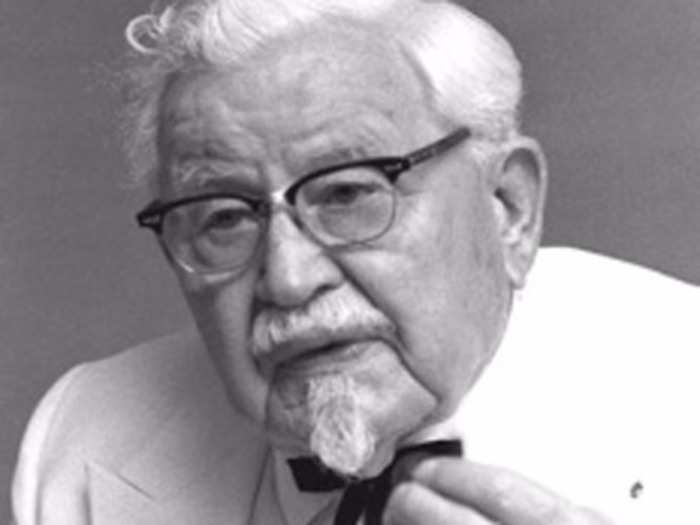
According to KFC, Colonel Harland Sanders sold tires in the early 1920s and became the top salesman in Kentucky, but he was fired because of his temper.
Times reports he was fired from dozens more jobs before closing his first restaurant and going broke at age 65. He was reportedly fired from two separate railroad jobs, once for insubordination and the other time for fighting a colleague, and as a country lawyer after assaulting his own client.
After losing his restaurant, Sanders traveled across the US looking for someone to sell his fried chicken. It wasn't until 1964, when Sanders was 74, that the Colonel had more than six hundred franchised outlets for his chicken and he sold his interest in the company for $2 million to a group of investors, according to Bio.
Anna Wintour was fired from her first job as a junior fashion editor at Harper's Bazaar.

The Vogue editor started her career in New York as a junior fashion editor at Harper's Bazaar. She made waves for her innovative shoots, but editor Tony Mazalla thought they were a little too edgy. She got canned after a mere 9 months.
Getting fired was a great learning experience and never held back her style. "I recommend that you all get fired," she told fashion students.
Shortly after leaving Harper's, she became a fashion editor at Viva, and in 1988 she was named Editor-in-Chief of Vogue, a job she has held for 27 years.
Jerry Seinfeld didn't know he was fired until he showed up for a read-through and his part was missing from the script.
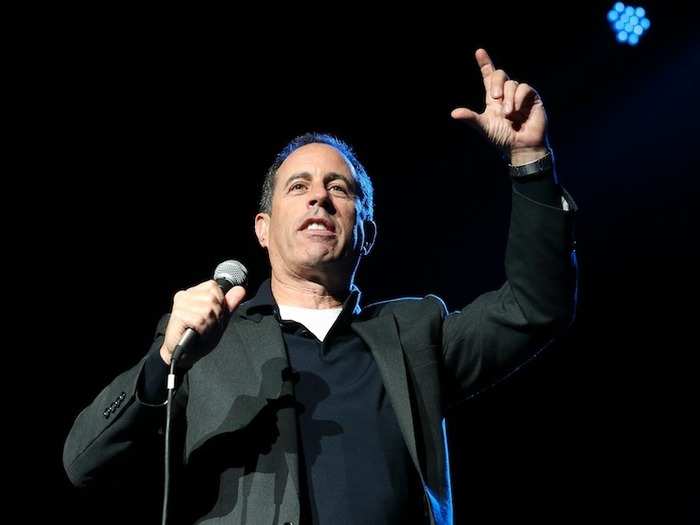
In the early 1980s, before his hit show "Seinfeld," the comedian had a small role on the sitcom "Benson," but, according to the New York Times, Seinfeld and the show's producers clashed over the character's direction, and he was fired after only four episodes.
Unfortunately, no one bothered to tell Seinfeld he'd been cut, according to "Jerry Seinfeld: Much Ado About Nothing." Seinfeld showed up for a read-through of the script one day and found there was no copy waiting for him. The assistant director pulled him aside and told him that they had neglected to inform him he was no longer on the show.
Seinfeld was humiliated, but he went right back to performing at comedy clubs. After one performance, a talent scout for the "Tonight Show" was in the audience. Seinfeld landed a gig on the show and his career immediately took off.
Sallie Krawcheck, often called one of Wall Street's 'most powerful women,' was fired from Bank of America in 2011.
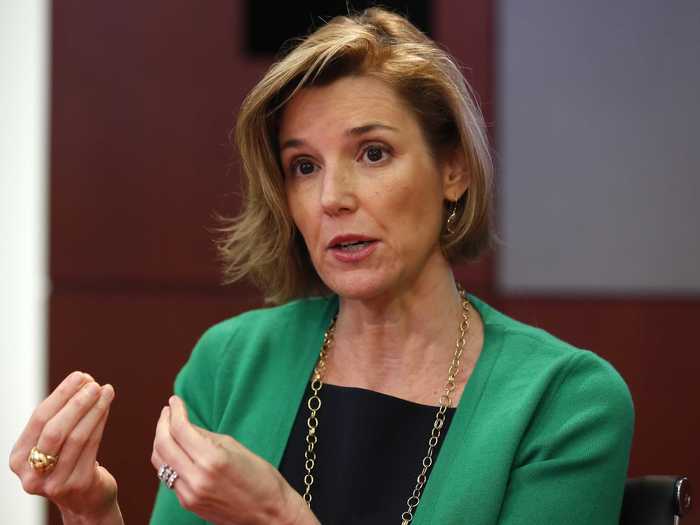
Two years after hiring Krawcheck from Citi, Bank of America fired its former president of the Global Wealth & Investment Management division, Forbes reports. The decision came from Bank of America's struggle in reorganizing its C-level execs after merging with Merrill Lynch.
"I got grateful when I got fired,” Krawcheck said at the Third Metric conference in June 2013. "I said, 'How many people get to get fired, and it's on the front page of The Wall Street Journal?'"
"If you asked me when it happened if I got fired from Citi because I'm a woman, I would have told you absolutely not," Krawcheck later told Fast Company. "But now I'd say, not exactly."
"I was invited to leave because I had a fundamentally different business perspective than the powers that be," she said.
In 2013, Krawcheck acquired women's networking group 85 Broads, which has more than 30,000 members in 130 countries, and renamed it Ellevate Network.
The New Yorker gave Truman Capote the boot after he insulted poet Robert Frost.
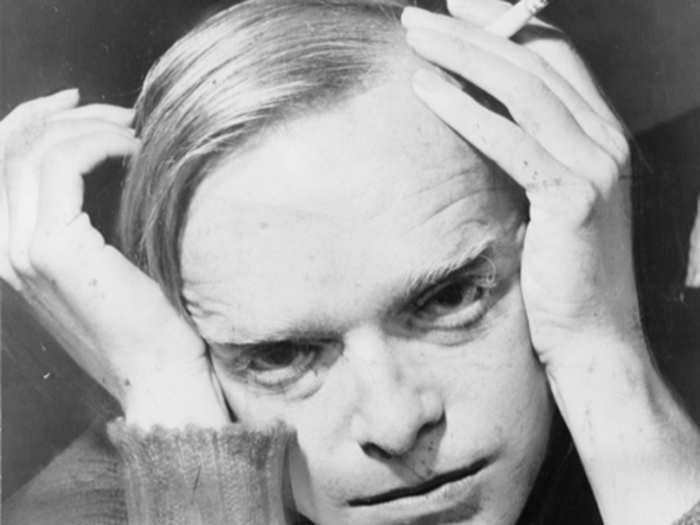
Capote dropped out of high school to become a copy boy for the New Yorker, according to "Capote: A Biography." His lifelong dream had been to be published in the prestigious magazine.
Two years later, Capote attended a reading by famed poet Robert Frost. Sick with a cold, Capote left in the middle of the meeting. Frost was deeply insulted, and knowing where Capote worked, he demanded that the magazine fire the boy.
Getting fired didn't hurt his career. He began to submit short stories to magazines like Harper's Bazaar and Mademoiselle. A few years later, he published his first novel.
Robert Redford was a lazy, sloppy manual worker. Turns out, his talents belonged elsewhere.
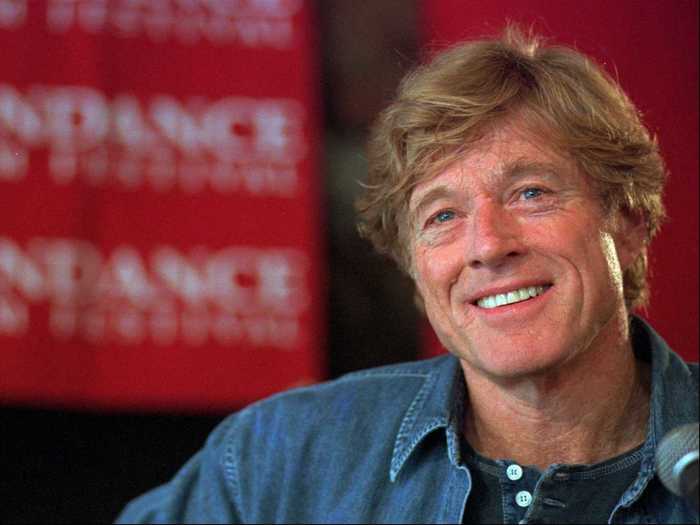
As a teenager, Redford worked in the shipping yard at the Standard Oil refinery in El Segundo driving a forklift and cleaning tanks.
According to "Fired Up!" when a supervisor found him asleep in an oil tank, instead of firing him, they moved him to the bottle-washing department in the chemical building. But when he smashed a load of glass bottles, he was terminated.
Redford was fired from a number of other odd jobs after that.
"I got fired from the jobs I should have been fired from," he said. "I took those jobs to earn money. The lesson I learned was that I wasn't meant to do any of those things. I was never meant to be in the labor market."
It wasn't until Redford moved to New York to pursue acting that he found his career path.
A Baltimore TV producer told Oprah Winfrey she was "unfit for television news."

According to "Become Your #1 Fan," Winfrey was fired from her evening news reporter gig with Baltimore's WJZ-TV because she got too emotionally invested in her stories. A Baltimore TV producer reportedly told her she was "unfit for television news."
As a consolation, though, he offered her a role on a daytime TV show, "People Are Talking."
The show became a hit, and Winfrey stayed for eight years, according to Bio.
Winfrey eventually became the host of "The Oprah Winfrey Show," which aired for 25 seasons. She's currently worth an estimated $3 billion, according to Forbes.
Before being named NFL Coach of the Year, Bill Belichick was kicked to the curb by the Cleveland Browns.
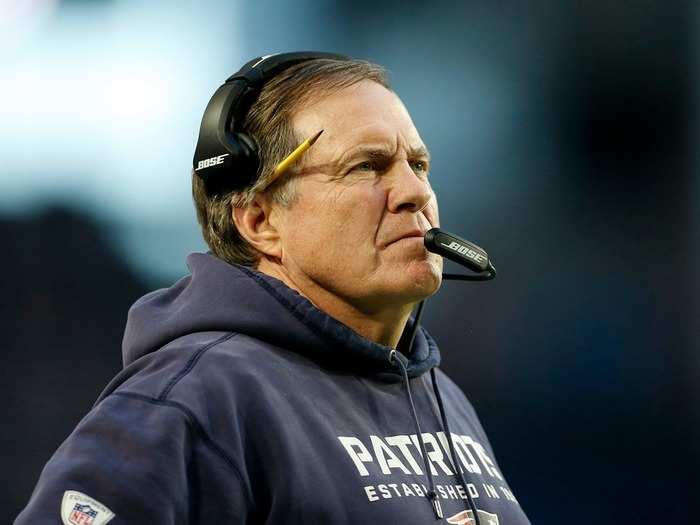
Since joining the New England Patriots in 2000, the head coach has led the team to six Super Bowl appearances and four wins. But in 1995, Belichick was fired from his first head coaching job with the Cleveland Browns by team owner Art Modell.
Belichick was named NFL Coach of the Year for 2003, 2007, and 2010 seasons and is the NFL's longest-tenured active head coach. He is widely considered one of the best coaches in history, according to Bio.
Madonna lost her job at Dunkin' Donuts for squirting jelly filling all over customers.
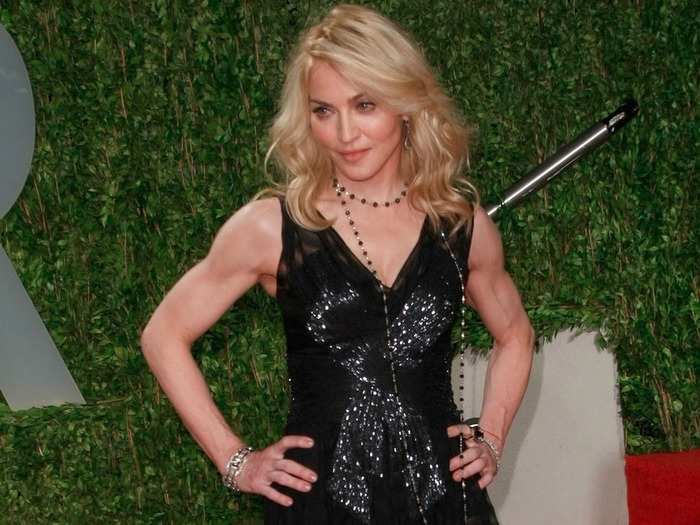
According to "Madonna" biographer Andrew Morton, when the artist dropped out of college and moved to New York to find fame, she had a rough start.
Strapped for cash, she took a job at Dunkin' Donuts in Times Square. She didn't even last a day. After squirting jelly filling all over a customer, her managers gave her the boot.
The Material Girl went through several fast food and waitressing jobs before she was introduced to the city's punk rock music scene in 1979.
Ford didn't want Lee Iacocca, so he brought his ideas to Chrysler.
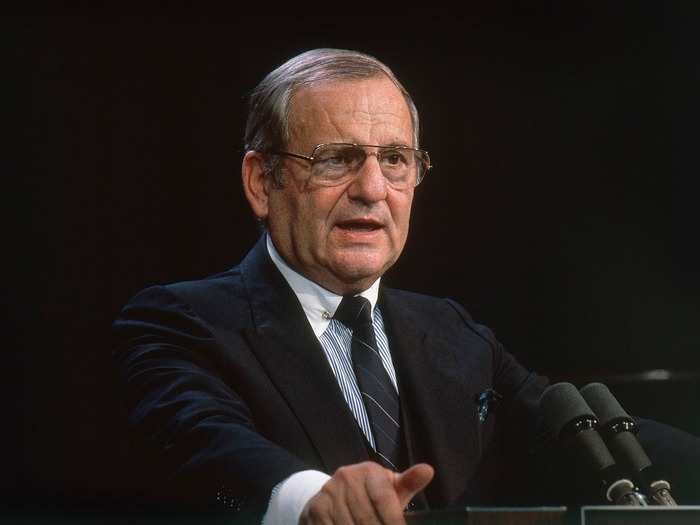
Iaccoca rose to the top of the Ford Motor Company, but he clashed with Henry Ford Jr., the company's then-CEO and chairman, according to "Iacocca: An Autobiography." After a string of unused and bad ideas (including the Ford Pinto), Iacocca was let go.
Iacocca was soon courted by Chrysler, which was in danger of going out of business. He took out a huge loan from the government and used it to revive the company. He brought several of his ignored ideas by Ford over to Chrysler, like the Dodge Caravan and the Plymouth Voyager.
He remained CEO of Chrysler until 1992 and is credited with helping the company achieve record profits, according to Bio.
Right before they started Home Depot, cofounders Bernie Marcus and Arthur Blank were fired from their jobs.
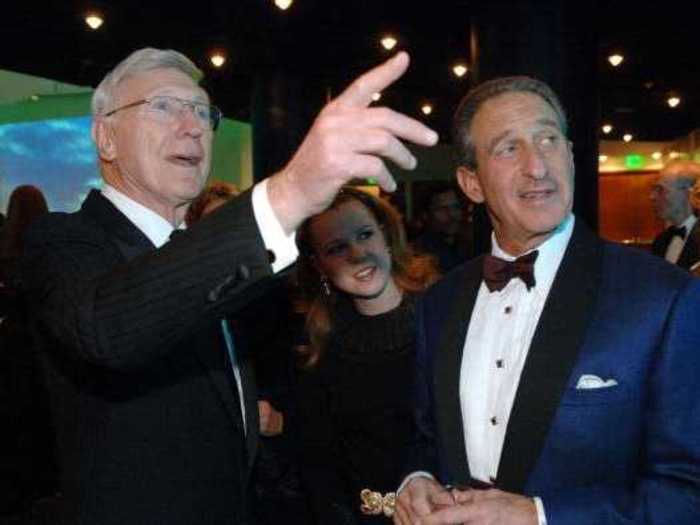
Marcus and Blank were working for Southern Californian home-center chain, Handy Dan, when a corporate raider fired both of them, Entrepreneur reports.
The two men decided to start their own home-improvement store based on an idea they'd had while at Handy Dan: an entire store of discounts. They called it Home Depot. In less than a decade, they'd opened more than 100 stores and made over $2.7 billion in sales.
Handy Dan shut down in 1989.
Popular Right Now
Popular Keywords
Advertisement